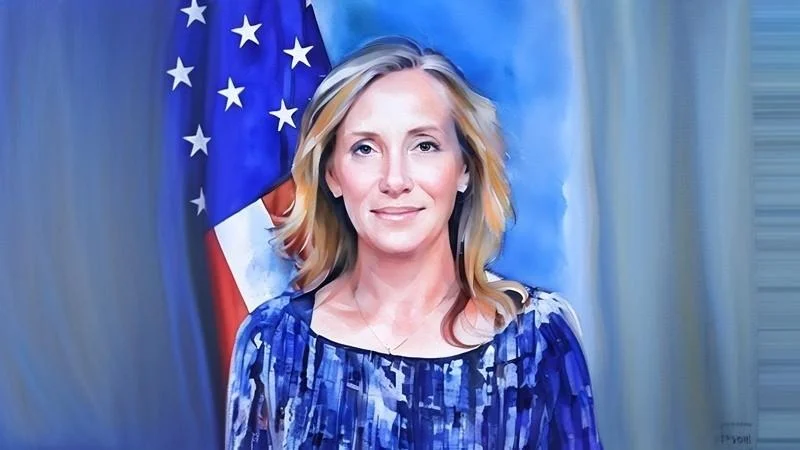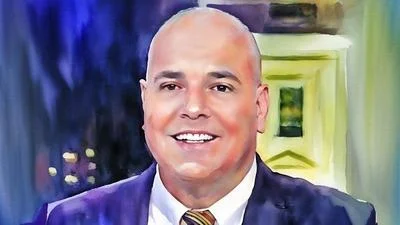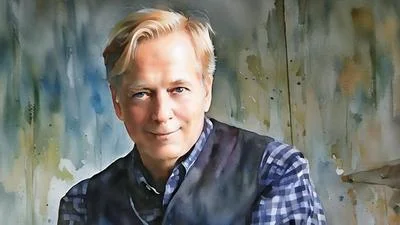Some observers see the war in Ukraine as a front in a broader global contest over sovereignty, technological warfare, and the balance of power between democratic and authoritarian regimes. Ukraine’s battlefield innovations and strategic alliances are reshaping how Western democracies think about deterrence, port security, and supply chain vulnerabilities.
Ambassador Kelley Currie, a veteran of U.S. foreign policy and human rights work, argues that the conflict is a bellwether for global order—and that the stakes for American national security, energy independence, and economic resilience are high.
Ambassador Currie is a nonresident senior fellow at the Atlantic Council and founding partner of Kilo Alpha Strategies. Having held senior roles at the United Nations and in the U.S. government, she now advises think tanks and sits on strategic advisory boards. Drawing on her firsthand visit to Ukraine and expertise in Indo-Pacific and European affairs, Currie lays out why Ukraine matters—not just for Europe, but for the world.
Currie says the recent Ukrainian drone attack on Russia’s strategic bomber fleet is “a revolution in military affairs.” She calls it “a new way of war” and credits Ukraine with pioneering a combination of “hybrid warfare,” artificial intelligence, and improvised platforms. “I think even American military planners… probably [also] the Chinese military planners… did not really see this coming,” she says. This innovation, Currie asserts, could reshape how the U.S. thinks about port security, air defense, and containerized threats. Even the Houthi rebels in Yemen are using drones to attack ships in the Red Sea, having sunk one and disabled another just this week.
She views the Ukrainian strike as a vital morale boost. “Last year, 2024, was a little bit of a demoralizing year for the Ukrainian people,” she says, citing stalled counteroffensives and fears over wavering U.S. support. But the successful attack “couldn’t come at a better time.” It shows that “they are capable of punching above their weight again.” Currie invokes a military adage: “Quantity has a quality all of its own,” highlighting Russia’s numerical advantage. But she is inspired by Ukraine’s “creativity and innovation” that continues to surprise even seasoned analysts.
She believes the strike even impressed President Trump, noting, “I think that was a very strong message.” She adds, “One of the things that Trump admires… it’s not the size of the dog in the fight, but the size of the fight in the dog.”
Currie sees the recently announced minerals deal between the Trump administration and Ukraine as strategically binding. “It does bind Ukraine and us together in a way that I think is very important and has… long-term implications,” she says. With China restricting access to critical minerals, “Ukraine can be a good partner to the United States.”
On sanctions policy against Russia, Currie acknowledges movement in Congress, noting that Speaker Johnson “jumped in and said, ‘hey, I will support that.’” However, she says success depends on European cooperation. “The United ISS isn’t and shouldn’t go further than the Europeans are willing to go… we need the Europeans to actually lead.” She calls out the lack of European sanctions on China: “They did absolutely nothing to deal with the fact that China remains the primary supporter of the Russian war effort.”
Currie praises General Cane for being “clear-eyed about the nature of what Vladimir Putin’s intentions are.” She stresses the education and experience of senior U.S. military leaders: “They are among the most highly educated people in the United States.” Currie believes that countries like Poland and the Baltics “understand very clearly” that they would be next if Ukraine falls. “There is no dovish[ness]…in Poland,” she says. “You have the hard line and then the harder line when it comes to Russia.”
According to Currie, Russia’s recent peace proposals are “just an ultimatum,” and “an embarrassing set of demands.” Each time Russia puts forward such proposals, “they make the President and his team more frustrated,” she says.
She saw the strength of Ukraine’s national character on a recent visit there. “The level of innovation was real,” she says, but also points to the psychological toll of renewed drone strikes in cities. Even so, Currie believes “their desire to remain [an] independent and free country outside of Russian control… will continue to steel their resolve.” She also offers a sober reflection: “No one wins this war,” and says Putin must “realize that no one wants this war.”
Currie is adamant that this isn’t just about Europe. “These are not separate theaters,” she says. “Anybody in Europe who thinks that they can leverage China against the United States… that is the exact wrong approach.” She characterizes the current conflict as “Cold War 2.0—or maybe even a continuation of Cold War 1.0,” with China now carrying the banner of global communism.
“There is no one theater,” she says. “We are in… a continuation of civilizational conflict and we need to recognize it as such.”









